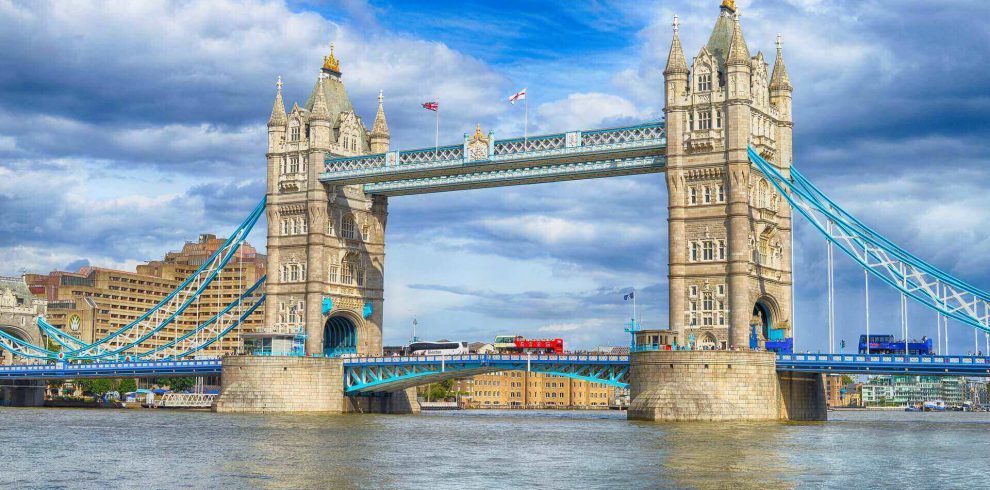United Kingdom
The United Kingdom of Great Britain and Northern Ireland is the full name of one of the biggest states in Europe. Almost every page of world history is marked with the word “Britain”. In the previous century, it created the greatest Empire, controlled the sea trade routes and ruled over the quarter of the planet’s territory.
During all times, Great Britain was on the proscenium of the world science and culture. The heritage of this country is remarkable: a steam-engine, the telephone, antibiotics, a prime meridian, Newton’s laws of motion, the theory of evolution, HTML and HTTP, football, cricket and dozens of other inventions in various spheres.
This is the cradle of the world literature classic that gave us such renowned writers as Charles Dickens and Daniel Defoe, Agatha Christie and Arthur Conan Doyle, Thomas More and George Orwell, Aldous Huxley and Charlotte Bronte, John Tolkien and Joanne Rowling, Lewis Carroll and Alan Milne, Rudyard Kipling and many others. A real phenomenon of world literature — William Shakespeare — was born here and worked on his best creations. According to UNESCO, Edinburgh was proclaimed to be the “City of Literature”.
Starting from the second half of the XX century, the British performers could be heard from all the loudspeakers on the planet. The Beatles, The Rolling Stones, Led Zeppelin, Black Sabbath, Queen, The Prodigy, Elton John, David Bowie, Amy Winehouse wrote their names in history forever.
The Royal Family holds a special place in the culture of Great Britain. Millions of tourists head to the palace to see the greeting from the Queen. The whole world watches with unconcealed interest the weddings, birthday and engagement parties, and even funeral events. The Royal Family sets the trends, participates in diplomatic missions, contributes to charity, and earns huge profit to Britain annually. Both local citizens and inhabitants of former British colonies have warm feelings to the Royal Family. The fact that the picture of Elizabeth II is printed on banknotes of various face-value in more than 10 countries proves their love.
Nowadays, the United Kingdom walks proudly in the vanguard of diverse international communities. Sometimes it seems that it casts an arrogant glance from the height of its island on the continent. However, you’ll be amazed by their cordiality and openness as soon as you get to know them better.
Cultural Tours
Tourism is travel for pleasure or business; also the theory and practice of touring, the business of attracting, accommodating, and entertaining tourists, and the business of operating tours. Tourism may be international, or within the traveller’s country. The World Tourism Organization defines tourism more generally, in terms which go “beyond the common perception of tourism as being limited to holiday activity only”, as people “traveling to and staying in places outside their usual environment for not more than one consecutive year for leisure, business and other purposes”.
Tourism can be domestic or international, and international tourism has both incoming and outgoing implications on a country’s balance of payments. Today, tourism is a major source of income for many countries, and affects the economy of both the source and host countries, in some cases being of vital importance.

- Jan
- Feb
- Mar
- Apr
- May
- Jun
- Jul
- Aug
- Sep
- Oct
- Nov
- Dec
Hiking
Hiking is the preferred term, in Canada and the United States, for a long, vigorous walk, usually on trails (footpaths), in the countryside, while the word walking is used for shorter, particularly urban walks. On the other hand, in the United Kingdom, and the Republic of Ireland, the word “walking” is acceptable to describe all forms of walking, whether it is a walk in the park or backpacking in the Alps. The word hiking is also often used in the UK, along with rambling (a slightly old-fashioned term), hillwalking, and fell walking (a term mostly used for hillwalking in northern England). The term bushwalking is endemic to Australia, having been adopted by the Sydney Bush Walkers club in 1927. In New Zealand a long, vigorous walk or hike is called tramping.It is a popular activity with numerous hiking organizations worldwide, and studies suggest that all forms of walking have health benefits.
In the United States, Canada, the Republic of Ireland, and United Kingdom, hiking means walking outdoors on a trail, or off trail, for recreational purposes. A day hike refers to a hike that can be completed in a single day. However, in the United Kingdom, the word walking is also used, as well as rambling, while walking in mountainous areas is called hillwalking. In Northern England, Including the Lake District and Yorkshire Dales, fellwalking describes hill or mountain walks, as fell is the common word for both features there.

- Jan
- Feb
- Mar
- Apr
- May
- Jun
- Jul
- Aug
- Sep
- Oct
- Nov
- Dec
